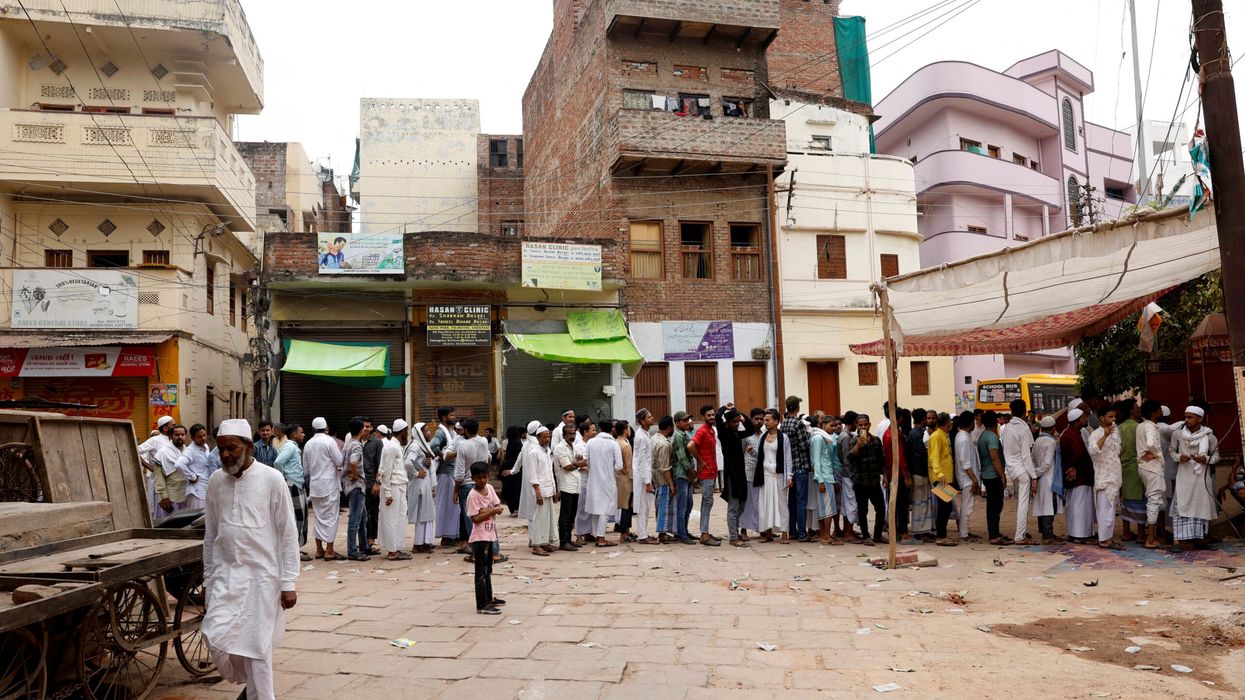INDIANS voted in searing summer heat on Saturday (1) in the final phase of the world's biggest election, as prime minister Narendra Modi seeks a rare third term in a poll focussed on inequality and religion.
More than 100 million people are registered to vote for 57 seats across eight states and federal territories in the seventh phase of the election, including in Modi's constituency in the Hindu holy city of Varanasi.
"Calling upon the voters to turnout in large numbers and vote," Modi said as polls opened in the northern state of Punjab and the eastern states of Bihar, West Bengal and Odisha. "Together, let's make our democracy more vibrant and participative."
His Hindu-nationalist Bharatiya Janata Party (BJP), battling an opposition alliance of two dozen parties led by Rahul Gandhi's Congress, is widely expected to keep its majority in the election with more than 1 billion registered voters.
But the BJP has run into a spirited campaign by the opposition "INDIA" alliance, sowing some doubt about how close the race might be.
What next?
The winners of India's April 19-June 1 general election are expected to form a new government by the middle of June after votes are counted on June 4. Analysts largely expect Modi to win a third straight term, as predicted by opinion polls before voting began.
Here is a look how votes are counted and what happens after that.
VOTE COUNTING
Vote counting is decentralised and done simultaneously at counting stations in each of the 543 constituencies around the country.
Counting begins at 8 am (0230 GMT) on June 4 with the tallying of postal ballots that only select groups can use, including people with disabilities, or those involved in essential services including security forces and some government officials.
After paper ballots, votes recorded in the Electronic Voting Machines (EVM) are counted, which India has used since 2000, moving away from paper ballots for national and state elections.
CRITICISM OF THE PROCESS
Along with the electronic record of each vote cast through the EVM, a corresponding paper slip is also produced, which is visible to the voter, and then stored in a sealed box.
The poll watchdog, the Election Commission of India (ECI), counts and verifies these paper slips against electronic votes at five randomly selected polling stations - drawn by lots - in different segments of each constituency.
While critics and some members of civil society, including some political parties, want verification to be done at more booths to increase transparency, the Supreme Court has declined to order any change in the vote-counting process.
The ECI has dismissed allegations that EVMs can be tampered, calling them foolproof.
FORMING THE GOVERNMENT
Results are announced for each constituency as soon as counting is completed. India follows the first-past-the-post system, under which a candidate with the highest number of votes wins, regardless of garnering a majority or not.
Result trends generally become clear by the afternoon of counting day and are flashed on television news networks. The official count from the ECI can come hours later.
After the ECI announces the results for all 543 seats, the president invites the leader of the party, or an alliance, which has more than half the seats to form the government.
The party or coalition with 272 or more seats then chooses a prime minister to lead the government.
In the 2019 elections, Modi's Hindu-nationalist Bharatiya Janata Party won 303 seats and its National Democratic Alliance partners secured about 50 more. Meanwhile, the main opposition Congress won just 52 seats, with another 91 seats going to its allies.
If no political party or alliance gets a simple majority, leading to what is called a "hung house", the president asks the party with the largest number of seats to form a government, and prove a majority on the floor of the house later.
A new Lok Sabha, the lower house of parliament, has to be in place before its current term ends on June 16.
WILL MODI WIN?
Opinion polls conducted before voting began on April 19 projected an easy victory for Modi for a rare third consecutive term, but a lower voter turnout, and a more unified opposition compared to 2019 have emerged as surprise challenges for him. Most analysts however say he is still likely to win.
(Reuters)





